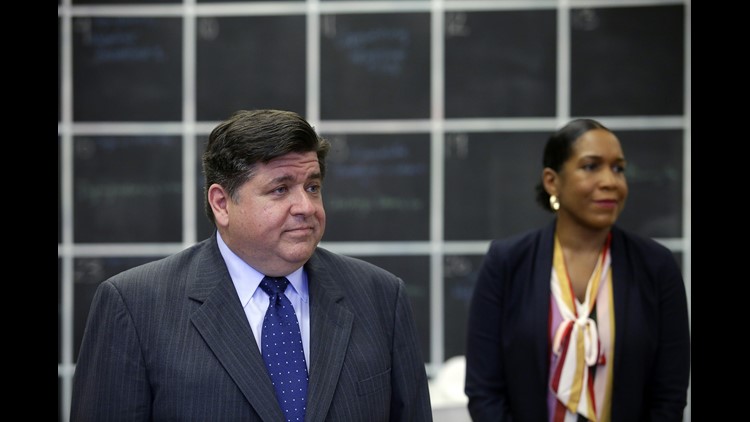SPRINGFIELD, Illinois (INN)-The incoming administration inherits a fiscal mess that some experts have said is beyond repair.
“One metaphor that comes to mind is some people have the best seats on the Titanic,” said Bill Bergman, research director at Truth in Accounting.
Bergman said the state is saddled with more than $200 billion of unfunded state employee retirement liabilities and more than $7 billion in backlogged bills.
After a 15-point victory over incumbent Gov. Bruce Rauner, Gov.-elect J.B. Pritzker said Tuesday that he wants “responsible budgets.”
Bergman said that could be code for tax increases. Pritzker said during the campaign that he wanted to lower taxes for the middle class, but repeatedly refused to say who would have to pay more to straighten out the state’s financial problems and fund his plans for new spending.
“One of the challenges facing any – quote – responsible budget – unquote – looking ahead is the possibility that raising taxes and raising tax rates is like squeezing blood from a stone if people are leaving because they’re concerned about future tax increases,” Bergman said.
Bergman said Illinois has led the nation in outbound migration because “taxpayers aren’t stupid.”
Illinois had a temporary tax increase that kicked in in 2011. It scaled back in 2015, the year Rauner took office. Lawmakers then passed a budget that was billions in the red, which Rauner vetoed. That began a historic two-and-a-half year budget impasse. Only after lawmakers gathered enough votes to override Rauner’s budget veto and pass a permanent tax increase in 2017 did the impasse end. Rauner then enacted a budget in 2018 that used all of the revenue from the $5 billion income tax increase he had vetoed. That budget still was unbalanced, despite the additional revenue.
On the campaign trail, Pritzker blamed Rauner for the budget impasse, even though Democrats were responsible for holding things up for part of that time.
Pritzker also campaigned on ushering in a progressive income tax, also known as a graduated income tax, where the rates differ on how much the taxpayer makes a year. Pritzker called it a fair tax, saying it should increase taxes on the wealthy and cut taxes for the middle class. He refused to provide details about what the rate structure would look like despite repeated questions.
The state is constitutionally required to tax income at a flat tax rate, right now 4.95 percent, that is set by the legislature. To make the rates tiered, 60 percent of voters would need to approve a constitutional amendment.
Financial analysis website Wirepoints crunched numbers on Pritzker’s proposed initiatives and estimated the extra cost to the state would be $10.7 billion annually, on top of the backlogged bills and pension debt. To pay for that with a tiered income tax rate structure, Wirepoints estimated that only increasing taxes on income over $1 million would require a rate of 24.3 percent. Even when including higher taxes for those making $150,000 or more a year, Wirepoints found the rate would need to be 13.6 percent, higher than the tax rate in California for income over $1 million.
Wirepoints Founder Mark Glennon said the outcome of Illinois’ election – which also gave Democrats, who have mostly backed the idea of a progressive income tax, strong one-party control over the legislature – likely means the issues of the state’s horrible finances won’t be addressed.
“It will be a question of how much further do we need to get to look like Detroit or Puerto Rico before people start demanding real reforms,” Glennon said.
Bergman said there is one silver lining in having one-party rule: Accountability.
“As opposed to blaming gridlock and the lack of a budget, now we have accountability more clearly identified and that may be a positive,” Bergman said.
Bergman said tax increases could repel residents to other states.



